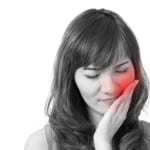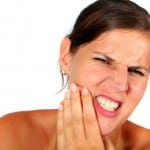 If you’ve had a tooth taken out, you might have experienced an uncomfortable condition called dry socket. This happens in around 5% of tooth extractions, when the bone has been exposed. Dry socket can be very painful, but staying in touch with the dentist that extracted your tooth will reduce your risk of dry socket and make sure you can get it treated if it does strike.
If you’ve had a tooth taken out, you might have experienced an uncomfortable condition called dry socket. This happens in around 5% of tooth extractions, when the bone has been exposed. Dry socket can be very painful, but staying in touch with the dentist that extracted your tooth will reduce your risk of dry socket and make sure you can get it treated if it does strike.
When does dry socket occur?
If you do get dry socket, it’ll probably hit you during the first few days after you’ve had your tooth removed. There’s bound to be a bit of discomfort after having a tooth taken out, but dry socket is especially uncomfortable. Your blood should clot after a tooth extraction, but if it doesn’t, the bone will be exposed and this can make you very sensitive to food, drink and even the air you breathe.
What causes it?
Smoking is a big one for disturbing the post-extraction blood clot, as is drinking through a straw. Blood clotting can also be affected by immunosuppressive drugs and birth control pills. If you take any of these, ask your dentist for advice when discussing your tooth extraction.
How is dry socket treated?
Luckily, dry socket can be dealt with easily by applying special medication to the area and carrying on with your oral hygiene routine. Always follow your dentist’s advice after having a tooth removed.









